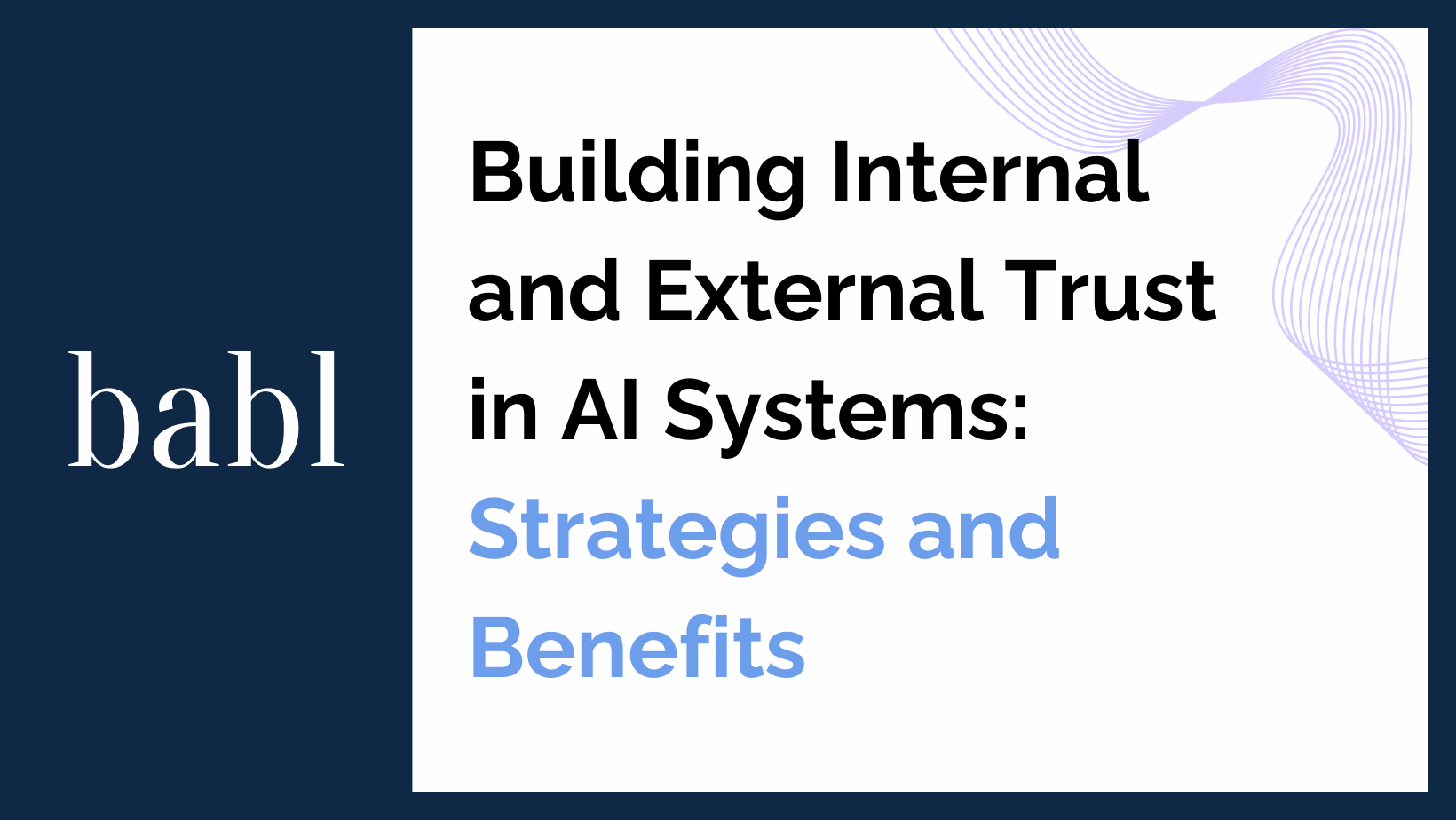Building Internal and External Trust in AI Systems: Strategies and Benefits
In today’s digital age, artificial intelligence (AI) is transforming industries and reshaping business practices. However, the widespread adoption of AI technologies brings with it a critical need for trust. Trust in AI systems is essential not only for maintaining consumer confidence but also for fostering positive employee relations and attracting investors.
Why Trust in AI Systems is Crucial
Trust is the cornerstone of successful business relationships. In the context of AI, trust ensures that stakeholders—whether they are customers, employees, or investors—feel confident in the technology’s capabilities and ethical use.
Strategies for Building Internal Trust in AI Systems
-
- Enhancing Transparency in AI Operations: To build trust within an organization, transparency is key. Companies should clearly communicate how AI systems are used, including their purpose, decision-making processes, and data sources. This transparency helps employees understand and trust the technology, reducing fear and uncertainty.
-
- Employee Training and Engagement: Providing comprehensive training programs that educate employees about AI’s capabilities, limitations, and ethical considerations can significantly enhance trust. Engaging employees in AI-related projects and decisions ensures they feel valued and invested in the company’s technological advancements.
-
- Establishing Clear Accountability Mechanisms: Defining clear roles and responsibilities for AI governance within the organization is crucial. Employees need to know who to contact with concerns or questions about AI systems. A well-defined governance framework ensures accountability and ethical AI practices, fostering a trustworthy work environment.
-
- Conducting Regular AI Audits: Regular audits of AI systems are essential for maintaining their integrity and reliability. These audits can identify and mitigate potential biases, errors, or compliance issues. Sharing audit results with employees can demonstrate the company’s commitment to ethical AI use and transparency.
Strategies for Building External Trust in AI Systems
-
- Public Communication of AI Ethics and Practices: Companies should publicly communicate their AI ethics and practices, including data privacy measures, AI training methodologies, and anti-bias initiatives. Transparency hubs on company websites, detailed reports, and public statements are effective tools for this purpose.
-
- Independent Third-Party Audits and Certifications: Engaging independent third parties to audit AI systems can enhance credibility and trust. Certifications from recognized bodies serve as evidence of a company’s commitment to ethical AI practices, reassuring consumers and investors.
-
- Active Stakeholder Engagement: Engaging with consumers, investors, and other stakeholders through surveys, focus groups, or public forums can build trust. Addressing stakeholder concerns openly and transparently helps in establishing a positive reputation.
-
- Proactive Response to Trust Issues: In cases of data breaches or AI bias incidents, companies must respond promptly and transparently. Admitting mistakes and outlining corrective actions demonstrates a commitment to accountability and ethical practices, helping to regain trust.
Benefits of Building Trust in AI Systems
-
- Increased Consumer Loyalty and Engagement: Trustworthy AI practices lead to higher consumer loyalty and engagement. When customers trust that their data is handled ethically, they are more likely to continue using a company’s products or services.
-
- Enhanced Employee Satisfaction and Retention: Employees who trust the AI systems they work with are more likely to be satisfied with their jobs and remain with the company. This reduces turnover rates and fosters a positive workplace culture.
-
- Attracting and Retaining Investors: Investors increasingly prioritize ethical considerations in their investment decisions. Companies known for responsible AI practices are more likely to attract and retain investors, boosting financial stability.
-
- Competitive Advantage: A reputation for trustworthy AI provides a competitive edge. In a market where trust is a scarce commodity, businesses that prioritize ethical and transparent AI practices are better positioned to attract and retain customers, employees, and investors.
Building trust in AI systems is a strategic imperative for businesses aiming to succeed in the AI-driven landscape. By focusing on transparency, accountability, and ethical practices, companies can foster trust both internally and externally. This trust not only safeguards against potential pitfalls but also enhances consumer loyalty, employee satisfaction, and investor confidence. As AI continues to evolve, businesses that prioritize building trust will be better positioned to thrive and achieve sustainable growth.
Need Help?
If you want to have a competitive edge, don’t hesitate to reach out to BABL AI. Their team of Audit Experts can provide valuable insights on implementing AI.





